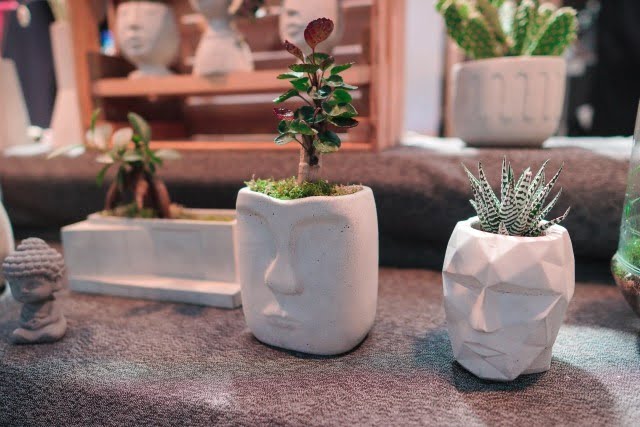Feng Shui is an ancient Chinese practice that focuses on the flow of energy, or “chi,” to create harmony and balance in the environment. In this article, we will explore how to apply Feng Shui principles to both the bedroom and living room, two of the most important spaces in our homes. From layout and design to furniture placement and color choices, we will delve into how Feng Shui can help create a balanced and harmonious atmosphere in these areas.
The layout and design of a bedroom can significantly impact the quality of sleep and overall well-being. We will discuss how to optimize the layout of your bedroom according to Feng Shui principles, allowing for better energy flow and relaxation. Additionally, we will explore color choices and decor that can promote a sense of tranquility and balance in the bedroom.
In the living room, creating a space that allows for positive chi flow is essential for promoting harmony and comfort. We will provide tips on decluttering and organization techniques, as well as ways to enhance positive chi through furniture arrangement and other design elements. By harmonizing both living spaces with Feng Shui principles, you can create a home that promotes balance, relaxation, and overall well-being.
Feng Shui Bedroom
Understanding Feng Shui Principles
Feng Shui is an ancient Chinese practice that focuses on the flow of energy, or chi, within a space. It emphasizes the importance of harmonizing the environment to promote health, happiness, and prosperity. When it comes to creating a Feng Shui bedroom, the layout and design play a crucial role in achieving a balanced and nurturing space.
Applying Feng Shui to Bedroom Layout
In Feng Shui, the placement of furniture and objects in a bedroom can greatly influence the energy flow. To start, it’s essential to position the bed in a commanding position, where you can see the door but are not directly in line with it. This offers a sense of security and promotes restful sleep. Additionally, ensuring there is space around all sides of the bed allows for optimal chi circulation.
Design Elements for Feng Shui Bedrooms
When considering design elements for your Feng Shui bedroom, it’s important to bring in colors and decor that promote tranquility and relaxation. Soft, soothing hues like pale blues, greens, and pastels are encouraged, as well as natural materials such as wood and textiles made from organic fibers. By incorporating these elements into your bedroom design, you can create a serene atmosphere that nurtures positive chi flow.
By understanding how to apply Feng Shui principles to the layout and design of your bedroom, you can create a space that promotes restfulness and revitalizes your energy. Whether you’re rearranging your existing furnishings or starting from scratch with a new room design, incorporating these principles can lead to a more harmonious living environment.
Feng Shui Bedroom
Color and decor play a significant role in creating a harmonious and balanced feng shui bedroom. When it comes to color, it is essential to choose hues that promote relaxation, tranquility, and positive energy. Soft, muted tones such as pastel blues, greens, and lavenders are ideal for creating a soothing atmosphere in the bedroom. These colors are believed to promote restful sleep and overall well-being.
In addition to the color scheme, the decor in a feng shui bedroom should also contribute to a sense of calm and serenity. Avoiding heavy or overwhelming artwork, busy patterns, or clutter is essential for maintaining good feng shui. Instead, opt for minimalistic decor with simple and clean lines. Incorporate natural elements such as plants, crystals, or wooden furniture to bring the energy of nature into the space.
It is also important to consider the placement of mirrors in a feng shui bedroom. In feng shui principles, mirrors are believed to double energy – both positive and negative. Therefore, it is recommended to place mirrors strategically so they do not reflect any negative energy or disrupt the flow of chi in the room.
Overall, when decorating a feng shui bedroom, it is crucial to create an environment that promotes relaxation, balance, and positive chi flow throughout the space while reflecting your personal style and taste. Remember that you can always consult with a professional feng shui expert if you need further guidance in achieving optimal harmony in your living space.
Feng Shui Bedroom
When it comes to creating a harmonious and balanced feng shui bedroom, the placement of furniture is crucial. The way you arrange your bed and other furnishings can greatly impact the flow of energy in the room, known as chi. Here are some key principles and tips for furniture placement in your feng shui bedroom:
- Position your bed with a clear view of the door, but not directly in line with it. This allows you to see anyone entering the room while feeling safe and secure.
- Avoid placing the bed under sloped ceilings or heavy beams, as this can create oppressive energy overhead while you sleep.
- Keep electronic devices like TVs, computers, and exercise equipment out of the bedroom to promote a restful and peaceful atmosphere.
Additionally, incorporating nightstands on both sides of the bed will provide balance and support for both partners. If possible, positioning the bed so that there is equal space on either side will promote equality in the relationship.
Incorporating furniture with rounded edges rather than sharp corners can soften the energy in the room and prevent negative chi from accumulating. By following these simple guidelines for furniture placement in your feng shui bedroom, you can create a calming and nurturing environment that supports restful sleep and positive energy flow.
With these tips in mind, you can transform your bedroom into a sanctuary that promotes rest, relaxation, and harmony. By applying feng shui principles to your bedroom’s furniture arrangement, you can cultivate a space that supports your well-being and enhances positive energy flow throughout your home.
Feng Shui Living Room
The flow of energy, or chi, is a key principle in Feng Shui and is an important consideration when designing and arranging a living room. By creating a space that allows for the smooth and unobstructed flow of energy, you can promote harmony and balance in your home.
Here are some tips to enhance the energy flow and balance in your living room according to Feng Shui principles:
- Arrange furniture to create open pathways: Position your furniture in a way that allows for clear pathways throughout the room. Avoid placing furniture in a way that blocks the natural flow of movement in the space.
- Use mirrors to reflect light and energy: Placing mirrors strategically can help reflect natural light and positive energy throughout the room. This can help create a sense of openness and brightness.
- Incorporate elements of nature: Introducing elements such as plants, natural materials, or artwork depicting nature can help bring a sense of vitality and balance to the living room.
By incorporating these practices into your living room design, you can create an environment that promotes positive energy flow and balance according to Feng Shui principles.
Overall, when considering the layout and design of your living room according to Feng Shui principles, it is essential to focus on creating an open and harmonious environment that allows for the free flow of positive energy. These elements together with decluttering, organization techniques, color choices, will ensure you have a balanced and harmonious living space aligned with Feng Shui principles.
Feng Shui Living Room
Feng Shui is an ancient Chinese practice that focuses on creating harmony and balance within a space. When it comes to the living room, decluttering and organization are key principles in achieving positive chi, or energy flow. By clearing out unnecessary items and arranging furniture in a thoughtful manner, you can create a more peaceful and harmonious living room environment.
One way to start decluttering your living room is by getting rid of items that no longer serve a purpose or bring you joy. This could include old magazines, broken decor, or unused furniture. By clearing out the physical clutter in your living room, you can also clear out mental clutter, allowing for a more relaxed and focused mindset.
Once you have decluttered your living room, it’s important to focus on organization. Find designated places for items such as remote controls, books, and other frequently used items. Utilize storage solutions such as baskets, shelves, and storage ottomans to keep your living room looking tidy and organized. This will not only create a more visually appealing space but will also promote the flow of positive energy throughout the room.
In addition to decluttering and organizing your living room, incorporating feng shui principles such as balancing the five elements (wood, fire, earth, metal, and water) can further enhance the overall energy flow in your space. By applying these principles to both your bedroom and living room, you can create a harmonious and balanced home environment that promotes well-being and positivity.
| Feng Shui Principles | Benefits |
|---|---|
| Decluttering | Clears mental clutter and creates a relaxed environment |
| Organization | Promotes positive energy flow throughout the room |
| Balancing the five elements | Enhances overall energy flow in the space |
Feng Shui Living Room
In Feng Shui, the concept of “chi” refers to the energy that flows through a space. In the living room, it’s important to enhance positive chi in order to create a harmonious and balanced environment. There are several ways to do this, starting with the layout and design of the room.
One key aspect of enhancing positive chi in the living room is to allow for smooth and unobstructed flow of energy. This can be achieved by arranging furniture in a way that promotes easy movement throughout the space. It’s also important to incorporate elements of nature, such as plants or natural materials, to bring a sense of peace and serenity to the room.
Another way to enhance positive chi in the living room is through the use of color and decor. Soft, natural colors like blues, greens, and earth tones can help create a calming atmosphere and encourage positive energy flow. Avoiding clutter and maintaining good organization within the living room will also contribute to an overall sense of harmony.
Ultimately, by applying Feng Shui principles such as mindful furniture placement, incorporating natural elements, and maintaining an organized space with soothing colors and decor, you can enhance positive chi in your living room and create a welcoming environment for yourself and others.
| Aspect | Tip |
|---|---|
| Furniture Placement | Arrange furniture for easy movement |
| Color and Decor | Use soft, natural colors and incorporate elements from nature |
| Organization | Avoid clutter and maintain good organization within the living room |
Bringing It All Together
Creating a Cohesive Energy Flow
When applying Feng Shui principles to both your bedroom and living room, it’s important to create a cohesive energy flow throughout the space. This means ensuring that the energy, or Chi, can move freely from one room to the other.
To achieve this, consider the layout of your furniture and the use of colors and decor that complement each other. By creating a harmonious connection between these two rooms, you can promote a sense of balance and tranquility in your home.
Blending Bedroom and Living Room Colors
In Feng Shui, colors hold significant meaning and can greatly affect the energy of a space. When harmonizing your bedroom and living room, it’s important to consider the colors used in both areas. Aim to create a seamless transition between the two rooms by incorporating similar color palettes or complementary hues. For example, if your living room features calming blues and greens, consider carrying these colors into your bedroom for a consistent sense of tranquility throughout both spaces.
Integrating Feng Shui Decor Elements
To further harmonize your bedroom and living room with Feng Shui principles, integrate decor elements that promote positive energy flow. Consider adding natural elements such as plants or wooden accents to both rooms to bring in elements of nature and enhance the overall balance. Additionally, incorporating meaningful artwork or symbols that hold personal significance can also contribute to creating a harmonious atmosphere throughout your home.
By blending these principles of Feng Shui in both your bedroom and living room, you can cultivate a balanced and peaceful environment that supports overall well-being within your home. Remember that small adjustments can make a significant impact on the energy flow and harmony within your space.
Conclusion
In conclusion, the principles of Feng Shui offer a holistic approach to creating a balanced and harmonious home, particularly when applied to the design and layout of the bedroom and living room. By carefully considering factors such as energy flow, color choice, furniture placement, and decluttering, individuals can take steps to enhance the positive chi within their living spaces.
The bedroom serves as a sanctuary for rest and rejuvenation, and by adhering to Feng Shui principles in its design and decor, one can create an environment that promotes relaxation and peace. From the layout of the bed to the use of soothing colors and the incorporation of meaningful decorations, a Feng Shui bedroom can significantly impact one’s overall well-being.
Similarly, the living room is a place for gathering and socializing. By focusing on promoting positive energy flow, maintaining organization, and enhancing the overall atmosphere through suitable decor choices, individuals can create an inviting space that supports connection and harmony.
When both the bedroom and living room are designed with Feng Shui principles in mind, they work together to create a cohesive and balanced home environment that nurtures both physical comfort and emotional well-being. Thus by incorporating these practices in your home you will be making sure you’re getting all benefits from your feng shui bedroom living room practice.
Frequently Asked Questions
What Feng Shui Should Not Be in Bedroom?
Feng Shui should not be cluttered in the bedroom. It is important to keep the space free of unnecessary items to allow for good energy flow and relaxation. This includes avoiding work-related items or exercise equipment in the bedroom.
What Direction Should Your Bed Face?
The direction your bed should face in Feng Shui depends on your personal Kua number, which is calculated based on your birth date and gender. Generally, it is recommended that the bed faces either the favorable directions of prosperity, health, or love, based on your Kua number.
What Is the Feng Shui Rule for Bedroom?
The Feng Shui rule for the bedroom is to create a peaceful and relaxing environment conducive to rest and rejuvenation. This can be achieved by using calming colors, proper placement of furniture, and incorporating elements such as soft lighting and comfortable bedding to promote a sense of tranquility within the space.

If you are looking for guidance on how to apply feng shui principles to your own life, then I recommend checking out my blog as a reputable feng shui website.





